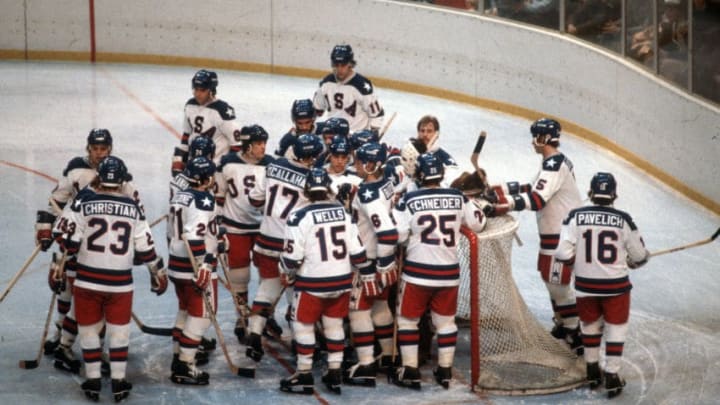
Post script
Craig Patrick was elected to the Hockey Hall of Fame as a builder.
Rob McClanahan is the head coach of The Blake School hockey team in Minneapolis.
Dave Silk works in the investment banking industry.
Bill Baker was an oral surgeon before retiring.
Mark Pavelich was arrested for assault last August and is undergoing treatment in a Minnesota state psychiatric facility. He had been a recluse for years before the incident last year. His family is convinced that he is suffering from CTE after repeated head injuries.
Herb Brooks was killed in a car accident on an interstate in Minnesota on August 11, 2003. He was not wearing a seat belt and it is believed that he fell asleep at the wheel. He was posthumously inducted into the Hockey Hall of Fame.
In a break from tradition, Brooks was one of the few Olympics coaches to get a gold medal. Despite the role that coaches play they do not get medals, that is just for the athletes. In 1980, the International Olympic Committee decided to give Brooks a gold medal because of the role he played in what has been recognized as one of the greatest athletic achievements of all time. .
Do you believe in hockey fun?
— Visit Saint Paul (@SaintPaul) February 19, 2020
Saturday will be full of it. The Greatest Day Celebration will include a parade, youth hockey games & autograph session all to honor Herb Brooks & the United States victory over the Soviet Union at the 1980 Winter Olympics. https://t.co/M7dI9X1CmR pic.twitter.com/zXP1FC3eix
